What is HRT? The benefits, side effects, and what you need to know about hormone replacement therapy
HRT is one of the common treatments for difficult menopause symptoms like hot flushes, night sweats, and insomnia. Here's what the doctors have to say about it
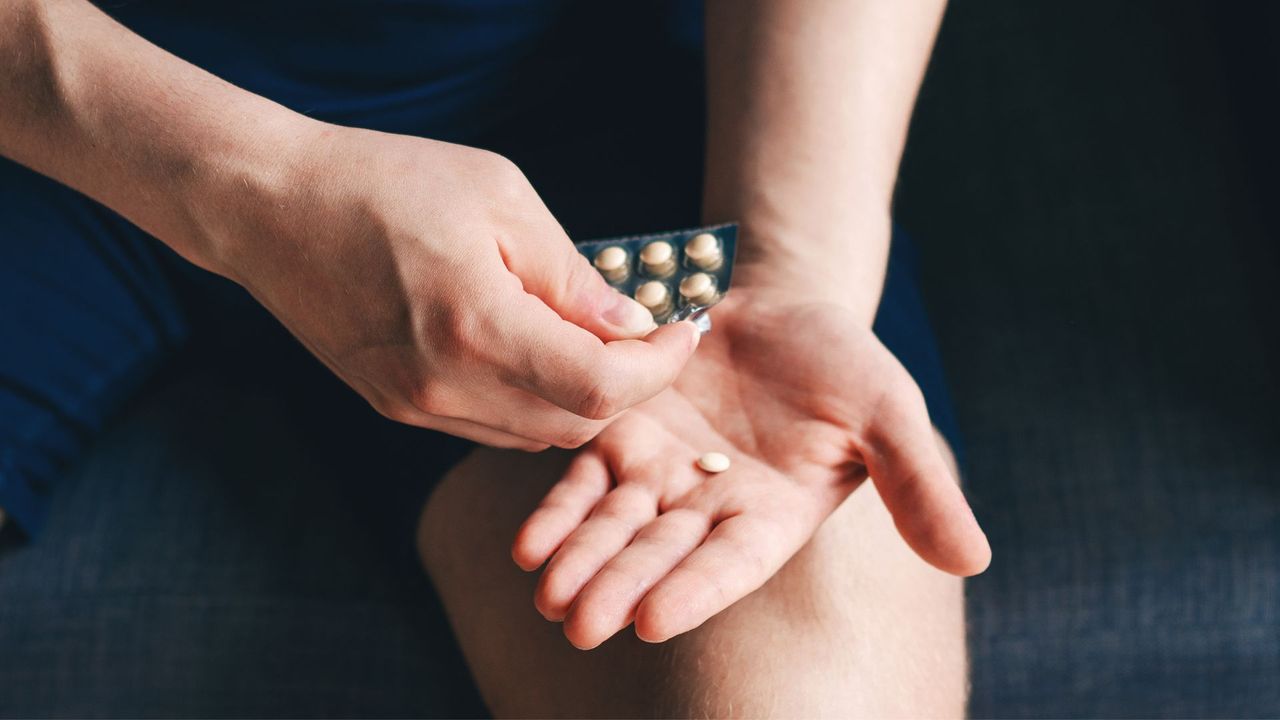

Hormone replacement therapy (HRT) is one treatment option for the estimated eight out of ten women who experience physical and emotional symptoms in the lead up to menopause.
HRT isn't the only way to manage menopause symptoms but it's thought that more than two million British women take HRT to deal with issues like hot flushes, night sweats, insomnia, vaginal dryness, and more. It's a therapy that replaces hormones oestrogen or progesterone, or both, as these begin to naturally decline in perimenopause.
As with any medical decision, it's important to speak to your doctor if you're struggling with menopause symptoms and want to know if HRT can help. In the meantime though, we've spoken to several doctors and advanced menopause specialists to reveal the need-to-knows.
What is hormone replacement therapy (HRT)?
Hormone replacement therapy (HRT) is a treatment that replaces oestrogen, progesterone, or both. These are important hormones in the body that start to decline in perimenopause, contributing to physical and mental health symptoms, such as hot flushes and brain fog.
There are different types of HRT, says Dr Shirin Lakhani, a GP and menopause specialist. "Women with a womb should receive oestrogen and progesterone (i.e. combined HRT) and those who have had a hysterectomy are offered oestrogen-only HRT," she explains.
It also comes in different forms, including patches, tablets, gels, sprays, and vaginal products. "Each method has its advantages and disadvantages so, ultimately, the choice should be with you as to which method suits you best," she says.
However, it's not a suitable option for everyone with benefits and risks just like any other medication, so be sure to speak to your GP before making a decision.
Sign up for the woman&home newsletter
Sign up to our free daily email for the latest royal and entertainment news, interesting opinion, expert advice on styling and beauty trends, and no-nonsense guides to the health and wellness questions you want answered.

Dr Shirin Lakhani is a GP, specialising in intimate health, menopause, hormone health, and women's wellness in general. She has also previously worked as an NHS doctor, gaining experience in several other hospital specialities including general surgery.
Benefits of hormone replacement therapy
The main advantage of HRT is it makes women feel better, says Dr Naomi Potter, a menopause specialist and the co-author of Menopausing with Davina McCall. "This is hugely important and must not be understated. Many women have an array of unpleasant symptoms and HRT can give quality of life back."
The key benefits include:
- Eases vasomotor symptoms: Vasomotor symptoms include hot flushes and night sweats. "These are caused by a drop in oestrogen levels. HRT increases these levels again, helping to combat symptoms," says Dr Cliona O'Connell, a GP and women's health specialist.
- Reduces vaginal dryness: "Urogenital atrophy is a condition that affects the tissue quality of the vulva, vagina, and bladder. It's again caused by the decrease in oestrogen during menopause and this is something that can be treated with HRT or vaginal oestrogen," says Dr O'Connell.
- Improves skin and hair quality: Declining hormone levels have been linked to changes in skin quality and hair thinning in women. "HRT can provide the hormones and nutrients required to keep skin and hair strong and healthy throughout menopause," she says.
- Reduces risk of adverse health conditions: "HRT also has advantages of bone and cardiovascular protection," adds Dr Potter. As oestrogen has protective qualities for the bones, heart, and other organs, maintaining levels can reduce the risk of adverse health conditions affecting these, such as osteoporosis and heart disease.
- May improve symptoms of anxiety and depression: Depression and anxiety in menopause are common symptoms and there is some evidence to suggest that HRT can improve these symptoms.

Dr Naomi Potter is a highly qualified doctor with an advanced certification from the British Menopause Society - the highest level of menopause training available. As well as being registered with the Royal College of General Practitioners and with the UK General Medical Council, Naomi is also a Diplomate of the Royal College of Obstetricians and Gynaecologists, and the Faculty of Sexual and Reproductive Health.
She wrote Menopausing: The positive roadmap to your second spring alongside Davina McCall, with the second edition now available to order.
Can hormone replacement therapy help with weight loss?
Weight gain and a change in how weight is distributed are also common in menopause - but there's little evidence to suggest that HRT can help with this specific issue, says Dr O'Connell. Instead, "good nutrition and an active and healthy lifestyle remain two of the most important factors" to manage this.
"What HRT does is help maintain increased energy and hormone levels, making it easier to maintain a good active life and exercise regime. By reducing symptoms like tiredness, brain fog and anxiety, HRT will allow women to live as normal and balanced life as possible," she says.
When to start hormone replacement therapy
There's no 'right' time to start HRT if you choose to go down that route - but many women are prescribed when they begin to experience symptoms of perimenopause.
"Before considering, HRT women need to be counselled on the benefits, side effects and risks. The benefits far outweigh the risks and side effects on the whole, but every woman’s situation and perception are different and they need to be taken into account," says Dr Potter.
What are the first signs that HRT is working?
The first sign that HRT is working is when you feel some relief from symptoms such as hot flushes, night sweats, and poor sleep. "This can take up to three months sometimes and you may need to adjust your dosage," warns Dr Lakhani.
“Symptoms such as low libido, brain fog, hot flashes, night sweats, mood swings or mood changes should improve after 3 months of HRT, and if they aren’t, I would speak to your healthcare professional about changing dosages," she says.

About 15% of women between 45 and 64 are prescribed HRT in England at the moment.
Does hormone replacement therapy cause hair loss?
Just like any medication, there are side effects of HRT and a strong link has been established between hair loss and menopause, with HRT being one cause. "This is due to the changes in hormones, specifically oestrogen and progesterone," says Dr Lakhani. "These hormones play a part in our hair health and growth and so fluctuations of the hormones can cause hair to thin, shed and even grow slower."
She also points out that menopause can cause the same issues for the same reasons - "due to a decreased level of oestrogen, progesterone, and testosterone," she says. "And it's important to note that not all women on HRT experience hair loss. In some cases, HRT can actually improve hair growth."
Side effects of hormone replacement therapy
The main disadvantages are potential side effects such as erratic bleeding and the hassle factor, says Dr Potter, as it can require some "messiness and monitoring" to get dosage right. "For some women, these factors mean it isn’t worth it. In terms of true risk, there is debate amongst scientists because data varies but if there is a small increased risk of breast cancer that increase is very small," she says.
The main disadvantages of HRT include:
- Breast tenderness: "Breast tenderness is common when starting HRT, but as our bodies get used to the medicine, it will usually subside," says Dr O'Connell.
- Headaches: Just as one of the symptoms of low hormone levels is headaches, the influx of extra hormones can also cause headaches for some women. "Headaches can be brought on by the increased oestrogen levels introduced to our bodies through HRT but, again, this may ease as our bodies get used to the new hormone levels," she says.
- Bloating: HRT is one of the common causes of bloating for those on the therapy, says Dr O'Connell, as "rapid hormone changes mean the body can retain water" easily.

Dr Cliona O’Connell has over 20 years working as a GP. She is a trained menopause expert and the creator of a Multi-Meno supplement, designed for women in this stage of life.
Can I just stop taking hormone replacement therapy?
If you have started hormone replacement therapy and, for whatever reason, decided it's not for you, the experts recommend weaning yourself off gradually. "It's not recommended to stop taking oestrogen overnight as it can cause temporary oestrogen withdrawal, which can worsen menopause symptoms," warns Dr Lakhani.
"Instead, I recommend gradually reducing the dosage over 3 to 6 months so your body can adjust to the fluctuation of hormones," she says.
However, before doing so, speak to your doctor who will be able to discuss the best approach for you and possible alternatives to HRT.
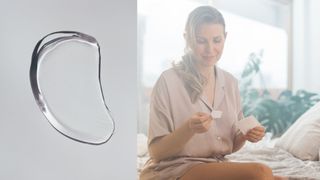
While HRT tablets are most common, it also comes as a gel or patch.
Is HRT safe for women?
The NHS says that the benefits of HRT more often outweigh the risks. The guidance says: "If you're under 60 years old, have menopause symptoms, and are not at high risk of breast cancer or blood clots, the benefits of HRT are likely to outweigh the risks."
Dr Potter also says that HRT is an "extremely safe option for the majority of women".
It may not be suitable for you if you have a history of breast, ovarian, or womb cancer, a history of blood clots, untreated high blood pressure, liver disease, or are pregnant, so be sure to discuss all your medical history with your medical practitioner.
Many people don't believe HRT is a safe option due to the narrative around HRT in recent years."I’ve seen a huge change in the narrative surrounding both menopause and HRT over the past decade," says Dr Potter. "Ten years ago menopause was hardly discussed and very few women were on HRT. There was practically no training for doctors and most women battled through with minimal care and then about five years ago, the UK woke up to the fact there was a gaping hole in information surrounding this important transition. It was an amazing time to be in the space as there was rapid information sharing on social media, fuelled by a thirst for knowledge."
More recently, the narrative has shifted again, she says. "There is debate, less consensus, and now so much information and misinformation that women are now finding themselves confused, and a bit overwhelmed by differences in opinion."
That's why it's important to research HRT and discuss your options with your doctor. "Everyone is different but women should not be scared of HRT," she says.
HRT patches vs tablets vs gels
- Tablets are most common: "You can get both oestrogen-only and combined HRT in tablet form. A lot of women find this easiest as they just have to take one tablet once a day so may be easier to remember," says Dr Lakhani. "However, some research has shown that tablets present a (albeit small) risk of blood clots in comparison to other forms."
- You have to switch out patches often: "Patches are generally quite popular as well, as you just have to stick a patch to the lower part of your body and it gradually releases small amounts of hormones into your body," she says. "Generally, you need to change the patch every few days and some women struggle to apply the patch or get it to stick."
- Gels and sprays are oestrogen-only: “Gels and sprays are also an increasingly popular form. However, on the NHS they are only available in oestrogen-only form. You just need to apply it onto the skin once or twice a day for the hormones to be absorbed into the body," she says.
If you are thinking about hormone replacement therapy, have questions, or want to discuss your options, speak to your GP. This article is not intended as medical advice.

Grace Walsh is woman&home's Health Channel Editor, working across the areas of fitness, nutrition, sleep, mental health, relationships, and sex. She is also a qualified fitness instructor. In 2025, she will be taking on her third marathon in Brighton, completing her first ultra marathon, and qualifying as a certified personal trainer and nutrition coach.
A digital journalist with over seven years experience as a writer and editor for UK publications, Grace has covered (almost) everything in the world of health and wellbeing with bylines in Cosmopolitan, Red, The i Paper, GoodtoKnow, and more.
-
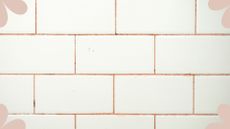 What is pink mould and how can you get rid of it safely? Experts share advice
What is pink mould and how can you get rid of it safely? Experts share adviceWhile you may not have even heard of pink mould, it's relatively common and important to know how to tackle it quickly
By Emily Smith Published
-
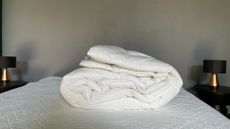 The White Company's Hypoallergenic Mattress Topper is surprisingly affordable and a dream to sleep on
The White Company's Hypoallergenic Mattress Topper is surprisingly affordable and a dream to sleep onThe The White Company Hypoallergenic Comfort Topper offers a gentle, supportive layer to your sleep set-up for a surprisingly affordable price.
By Laura Honey Published
-
 5 sexperts share their secrets to better sex for mature women
5 sexperts share their secrets to better sex for mature womenThese women know how to put the va-va-voom back into the bedroom… possibly even the kitchen! Here's what we've learned from them
By Kim Willis Published
-
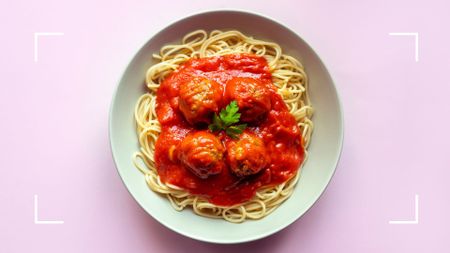 Can menopause cause a loss of taste and smell? Plus, 6 other signs of menopause you might not expect
Can menopause cause a loss of taste and smell? Plus, 6 other signs of menopause you might not expectCan menopause cause a loss of taste and smell? It's more than just colds and flu that can change our tastebuds
By Emily Smith Published
-
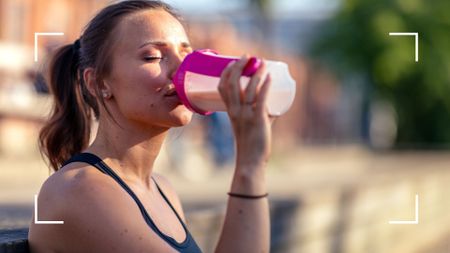 The health benefits of protein powder for women, according to a nutritionist
The health benefits of protein powder for women, according to a nutritionistWe've got the scoop on the benefits of protein powder when it comes to your health
By Lucy Gornall Published
-
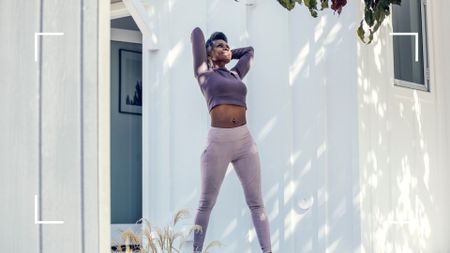 Wondering if you're postmenopausal? These are 9 ways your body changes post-menopause
Wondering if you're postmenopausal? These are 9 ways your body changes post-menopauseThese are the body changes you can expect if you're postmenopausal
By Lauren Clark Published
-
 Can you get pregnant during perimenopause? Here’s how your fertility changes from your 40s
Can you get pregnant during perimenopause? Here’s how your fertility changes from your 40sIf you’re wondering can you get pregnant during perimenopause, we’ve got the expert verdict
By Lauren Clark Published
-
 What are the main menopause symptoms? Find out the signs and when to see your doctor
What are the main menopause symptoms? Find out the signs and when to see your doctorA team of experts outline common menopause symptoms and how to deal with them
By Stacey Carter Published
-
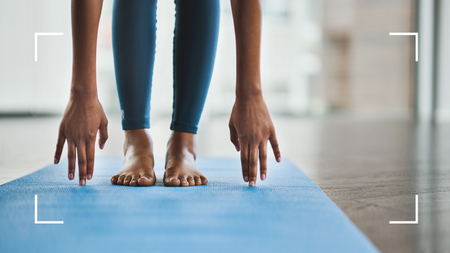 Here's how to tell whether you're experiencing menopausal weight gain—and what to do about it
Here's how to tell whether you're experiencing menopausal weight gain—and what to do about itIf menopausal weight gain is knocking your confidence, this is everything you need to know...
By Lauren Clark Published
-
 How to calm down hot flushes if you are going through the menopause
How to calm down hot flushes if you are going through the menopauseHot flushes are thought to be caused by hormonal fluctuations—these are the best ways to ease them...
By Lauren Hughes Published